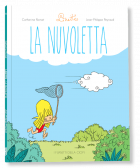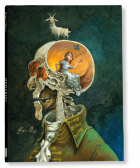MEREDITH GEORGE
 George Meredith (1828-1909)
George Meredith (1828-1909)
Novelist and poet was born in Portsmouth.
Training as a lawyer in London, he had no taste for law, and he soon picked up journalism: at 21 he was writing poetry for magazines and his first printed work, a poem on the Battle of Chillianwallah, appeared in Chambers’s Journal. Two years later he published Poems (1851), containing Love in the Valley. Meantime he had been the editor of a small provincial newspaper, and in 1866 he was war correspondent in Italy for the Morning Post, also working for many years as literary adviser to Chapman and Hall. By this time, however, he had produced several of his novels. The Shaving of Shagpat had appeared in 1856, Farina in 1857, The Ordeal of Richard Feverel in 1859, Evan Harrington in 1861, Emilia in England (also known as Sandra Bellon) in 1864, its sequel, Vittoria, in 1866, and Rhoda Fleming in 1865. He also produced several poetry collection, such asModern Love and Poems of the English Roadside (1862), generally regarded as his best poetical work. These were followed by The Adventures of Harry Richmond (1871), Beauchamp’s Career (1875), said to be the author’s favourite, The Egoist (1879), which marks the beginning of a change in style characterised by an even greater fastidiousness in the choice of words, phrases, and condensation of thought than its predecessors, The Tragic Comedians (1880), and Diana of the Crossways, the first of the author’s novels to attain general popularity.
During this period he wrote a number of poems, Poems and Lyrics of the Joy of Earth (1883), Ballads and Poems of Tragic Life (1887), and A Reading of Earth (1888). His later novels, One of our Conquerors (1891), Lord Ormont and his Aminta (1894), and The Amazing Marriage (1895), exhibit a tendency to stress those qualities of style which denied general popularity to all of Meredith’s works. The contemporary poems include The Empty Purse and Jump to Glory Jane (1892). He got married twice, but his life with his two wives was very troubled and unhappy. In his earlier life he was vigorous and athletic; later on, he lost all power of locomotion.
Though the writings of Meredith have never been that popular, his genius was, from the very first, recognised by the best literary minds. Nevertheless, the long delay in receiving even the kind of recognition which he sought, was a disappointment to him. It could be said that Meredith was an ambitious, uncertain and unequal poet. He somehow aimed at a degree of dramatic tension, that he often gave a show of achieving without really realising. But to compensate for these defects he offers humour, often, indeed, whimsical, but keen and sparkling, close observation of and exquisite feeling for nature, a marvellous power of word-painting, the most delicate and penetrating analysis of character, and an invincible optimism which, while not blind to the darker aspects of life, triumphs over the depression which they might induce in a weaker nature.
From Biographical Dictionary of English Literature - the Everyman Edition of 1910
links: - George Meredith: An Overview |






